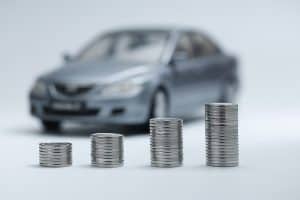It’s no secret that shopping for a car involves making many choices — from the color, to the style, to the features and accessories. There’s another choice to consider when you are in the market for a car — whether to lease or buy. Once available primarily for luxury vehicles, leasing is now available for a variety of vehicles, making it an attractive option for those who want to experience the benefits of having a new car — for lower monthly payments. But before you sign on the dotted line, it’s important to understand how a lease works, as well as the advantages and disadvantages of leasing versus buying.
A new lease on car shopping.
When you buy a car, you agree to pay for the price of the vehicle, plus interest, taxes, and fees. In contrast, with a lease, you pay only for the depreciation of the car during the lease term plus interest taxes and fees. Deciding whether to lease or buy really depends on your needs, finances, and comfort level. In general, leasing is usually attractive for people who —
- Like to drive newer cars.
- Put average or below average mileage on their cars each year.
- Don’t have down payment funds, or have a car to trade in.
Leasing offers appealing benefits, too, including:
- Lower monthly payments. This allows you to afford to drive a new car with more features (which you might not have been able to afford otherwise).
- Less upfront costs.
- Less repair costs, since you are driving the car in its early years when the warranty is still in effect.
- The opportunity to get a newer car in a few years when your lease term expires.
Leasing does have some drawbacks, which include:
- No ownership. At the end of the lease term, you won’t own the vehicle, though you will have the option to purchase it.
- Continued car payments. When you pay off a car you buy, you no longer have monthly car payments. With a lease, however, you’ll continue to have monthly payments whether you lease a new car or decide to purchase the leased vehicle.
- Mileage limitations. Most lease terms come with 12,000 miles per year. If you exceed this amount, you will pay a fee per mile, which can be costly. You can, however, purchase extra miles, which will increase your payment.
- Higher costs. Over the long term, you will end up paying more if you lease the car than you would if you purchased it. In addition, you may be subject to charges if the condition of the car is beyond normal wear and tear.
Leasing versus buying.
With the lower payments and maintenance costs, leasing can be an attractive alternative. However, it’s important to understand the benefits of buying a car, which include:
- Having an asset at the end of your loan term, which you can use as a trade in.
- No car payments when you pay off your loan.
- No mileage limit or restrictions on making any changes to the car.
In short, there are benefits to both leasing and buying. Make sure you understand and weigh all your options and drive away with the best choice for you


